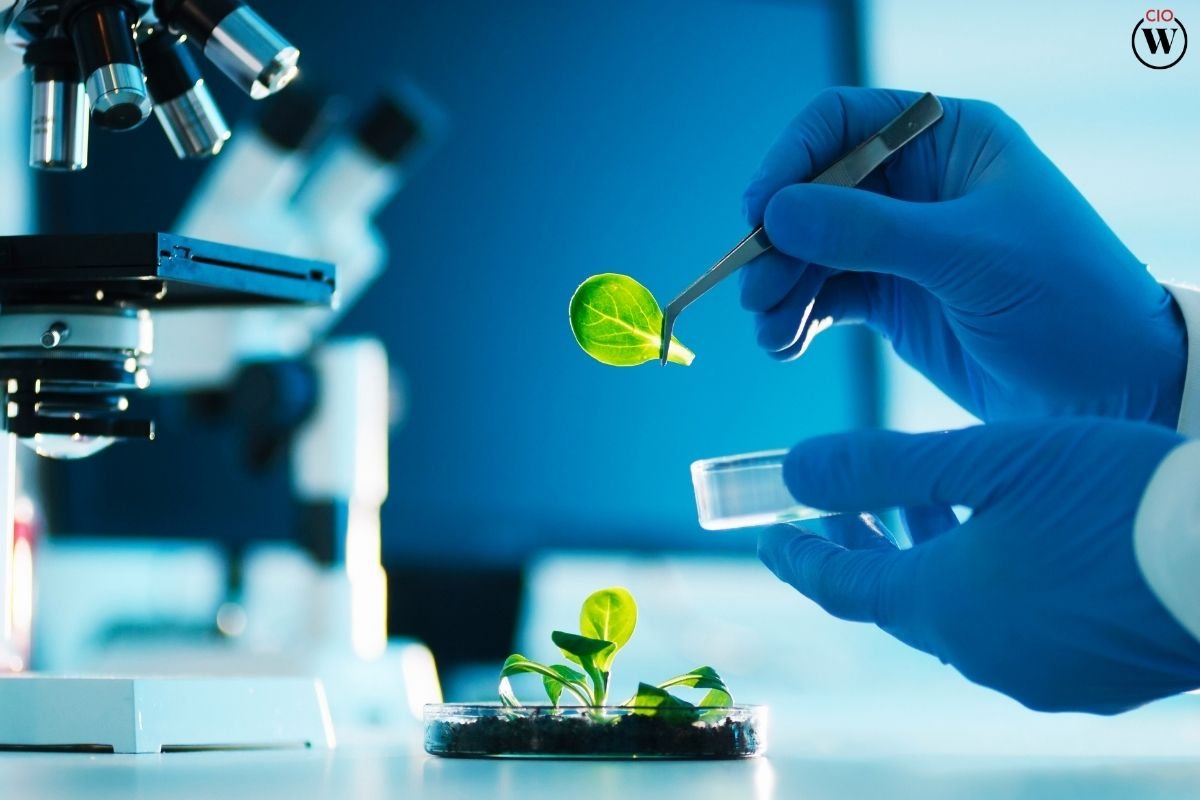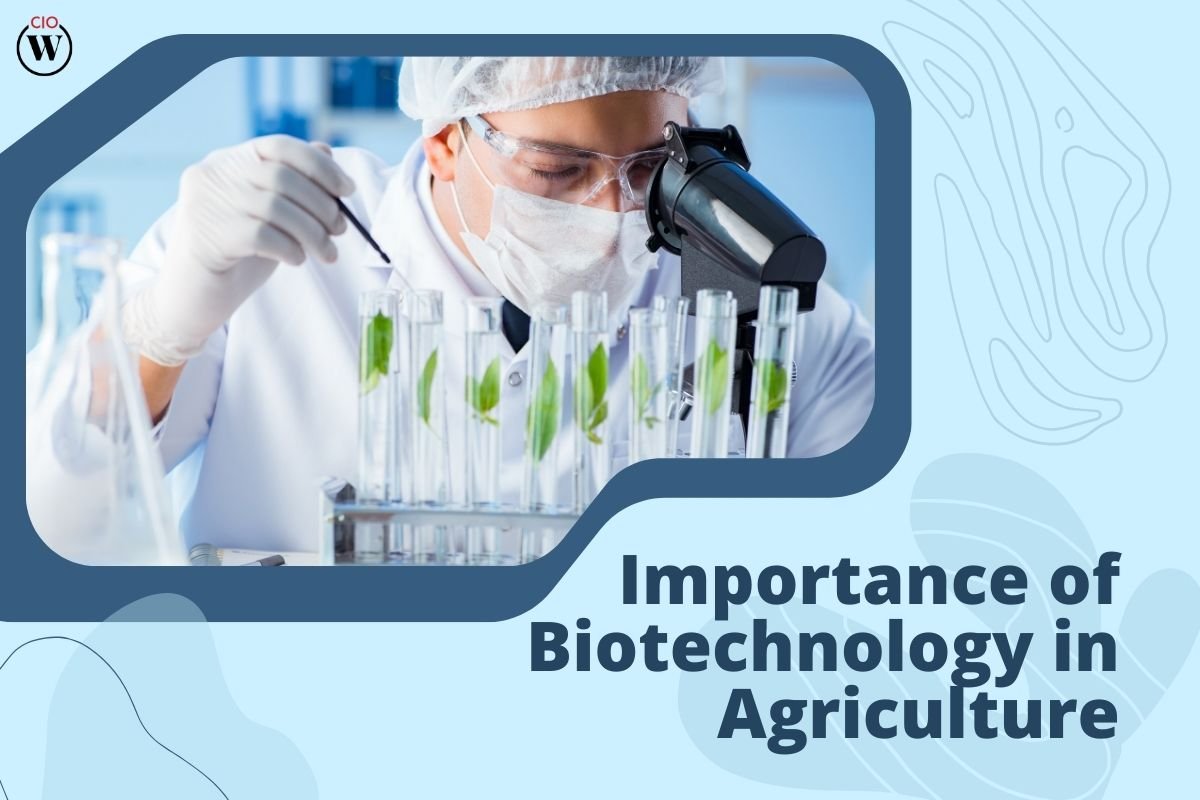In the vast landscape of agriculture, one scientific frontier stands out as a beacon of hope and innovation: biotechnology. As we navigate through the complexities of modern farming, the role of biotechnology emerges as a crucial driver of sustainable food production and environmental stewardship. In this blog, we delve into the profound significance of biotechnology in agriculture, exploring its multifaceted impacts and promising potential.
Understanding Biotechnology in Agriculture
Biotechnology in agriculture encompasses a spectrum of techniques and tools aimed at enhancing crop productivity, improving resilience to environmental stresses, and minimizing the ecological footprint of farming practices. At its core, biotechnology harnesses the power of living organisms, such as plants, microbes, and genetic materials, to address the challenges facing global food security.
The Importance of Biotechnology in Agriculture
1. Increased Crop Yield:

One of the primary objectives of biotechnology in agriculture is to enhance crop yield to meet the growing demands of a burgeoning global population. By employing advanced breeding techniques and genetic modification, biotechnologists can develop crops with improved traits such as higher yields, disease resistance, and tolerance to adverse environmental conditions.
2. Pest and Disease Management:
Biotechnology offers innovative solutions for managing pests and diseases that pose significant threats to crop productivity. Through genetic engineering, scientists can create crops with built-in resistance to common pests and pathogens, reducing the reliance on chemical pesticides and promoting sustainable pest management practices.
3. Environmental Sustainability:
In an era marked by concerns over environmental degradation and climate change, the adoption of biotechnology holds immense promise for promoting environmental sustainability in agriculture. By reducing the need for chemical inputs, minimizing soil erosion, and conserving water resources, biotechnology plays a vital role in mitigating the environmental impact of farming activities.
4. Improved Nutritional Quality:
Biotechnology enables the development of crops with enhanced nutritional profiles, addressing nutritional deficiencies prevalent in certain regions of the world. Through biofortification, scientists can enrich staple crops such as rice, wheat, and maize with essential vitamins and minerals, offering a cost-effective solution to combat malnutrition and improve public health outcomes.
5. Adaptation to Climate Change:

As the global climate continues to change, agricultural systems face unprecedented challenges in adapting to shifting weather patterns and extreme climatic events. Biotechnology provides a toolkit for developing climate-resilient crops capable of thriving in diverse environmental conditions, thereby safeguarding food security and livelihoods in the face of climate uncertainty.
6. Sustainable Resource Management:
Biotechnology facilitates the development of crops that require fewer inputs such as water, fertilizers, and pesticides, thereby promoting more efficient resource utilization and reducing the environmental footprint of agricultural production. By optimizing resource use efficiency, biotechnology contributes to the long-term sustainability of agricultural systems.
7. Economic Empowerment:
The adoption of biotechnology in agriculture can have profound socio-economic impacts, particularly in rural communities dependent on farming for their livelihoods. By increasing crop yields, improving market access, and reducing production costs, biotechnology empowers farmers to enhance their incomes and improve their standard of living, thereby fostering economic development and poverty alleviation.
8. Preservation of Biodiversity:
Biotechnology plays a pivotal role in conserving biodiversity by offering alternatives to traditional agricultural practices that often involve habitat destruction and ecosystem degradation. Through the development of genetically diverse crop varieties and the restoration of degraded lands, biotechnology contributes to the preservation of biodiversity and the protection of fragile ecosystems.
9. Food Security:
Biotechnology contributes to global food security by increasing agricultural productivity, enhancing crop resilience, and improving the nutritional quality of staple foods. By addressing yield gaps, reducing post-harvest losses, and enhancing the availability of nutritious food, biotechnology helps ensure that all people have access to an adequate and diverse diet, thus mitigating hunger and malnutrition worldwide.
10. Innovation and Research:

Biotechnology drives innovation and research in agriculture by enabling scientists to explore new frontiers in crop improvement, disease management, and sustainable farming practices. Through interdisciplinary collaborations and the application of cutting-edge technologies such as genomics and synthetic biology, biotechnology fosters a culture of innovation and continuous improvement in agricultural science and technology.
11. Global Competitiveness:
The adoption of biotechnology enhances the competitiveness of agricultural sectors in both developed and developing countries by improving productivity, reducing production costs, and enhancing the quality and marketability of agricultural products. By enabling farmers to produce more with less, biotechnology helps agricultural industries remain competitive in the global marketplace, thereby contributing to economic growth and prosperity.
Challenges and Opportunities
Despite its transformative potential, biotechnology in agriculture is not without challenges and controversies. Concerns surrounding the safety of genetically modified organisms (GMOs), the concentration of market power in the hands of biotechnology companies, and the potential impacts on biodiversity and ecosystem health warrant careful consideration and robust regulatory oversight.
However, these challenges should not overshadow the immense opportunities that biotechnology presents for addressing some of the most pressing issues facing agriculture today. By fostering collaboration between scientists, policymakers, farmers, and consumers, we can harness the full potential of biotechnology to build a more resilient, sustainable, and equitable food system for future generations.
Conclusion
In conclusion, the importance of biotechnology in agriculture cannot be overstated. From increasing crop yields and enhancing nutritional quality to promoting environmental sustainability and economic empowerment, biotechnology offers a suite of tools and solutions to address the complex challenges facing global food security. By embracing innovation and harnessing the power of biotechnology, we can pave the way for a brighter and more prosperous future for agriculture and society as a whole.
Remember, the importance of biotechnology in agriculture extends far beyond the confines of this blog. As we continue to explore and harness the potential of biotechnology, let us remain mindful of the ethical, social, and environmental implications of our actions, ensuring that the benefits of biotechnology are equitably shared and responsibly managed for the benefit of all.








